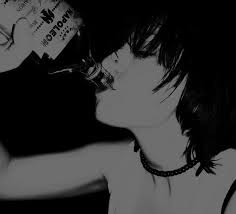NewDay Counseling
If you have a problem with alcohol or some other drug, call a NewDay counselor at 912.201.3605 * 401 Mall Blvd, Ste 101 D, Savannah, Ga * Free Phone Consultations
Young people and alcohol

For many teenagers, drinking is experimentation, a chance to get a thrill, a means of partying, a way to have fun. Our society is lenient on young people and alcohol, because alcohol is a socially accepted drug. Most parents will not want their teenage kids to drink alcohol, but they’ll accept drinking over cocaine use, or heroin use, or even pot smoking — although some parents might think smoking marijuana is preferable to drinking alcohol, if they have to experiment with a drug. The problem with teenage drinking is that it’s usually done in binges and to excess creating myriad risks that can change the course of a life or end a life. It’s unreasonable to expect teenagers to never experiment, but it’s not unreasonable to address the potential problem in a smart and authentic way that truly gets the message to the young person. A wink, a nod and a slap on the wrist for excessive drinking behavior will not likely send the right message to teenagers. They need to know all the facts.
This is from NIAAA:
Every year in the United States, about 5,000 young people under age 21 die as a result of underage drinking.5 This includes:
- 1,900 deaths from motor vehicle crashes
- 1,600 from homicides
- 1,200 from alcohol poisoning, falls, burns, and drowning
- 300 from suicides
Causes many injuries
In 2008 alone, about 190,000 people under age 21 visited an emergency room for alcohol-related injuries.
Impairs judgment
Drinking can lead to poor decisions about engaging in risky behavior, including drinking and driving, sexual activity (such as unprotected sex), and aggressive or violent behavior.
Increases the risk of physical and sexual assault
Underage drinkers are more likely to carry out or be the victim of a physical or sexual assault after drinking than others their age who do not drink.
Can lead to other problems
Drinking may cause youth to have trouble in school or with the law. Drinking alcohol also is associated with the use of other drugs.
Increases the risk of alcohol problems later in life
Research shows that people who start drinking before the age of 15 are four times more likely to meet the criteria for alcohol dependence at some point in their lives.
Interferes with brain development
Research shows that young people’s brains keep developing well into their 20s. Alcohol can alter this development, potentially affecting both brain structure and function. This may cause cognitive or learning problems and/or make the brain more prone to alcohol dependence. This is especially a risk when people start drinking young and drink heavily.
I know it’s hard to talk to teenagers about anything, and especially drinking and sex and their behavior with friends, but teenagers aren’t adults and their mental functioning is still in transition, so it’s best they know everything about alcohol before going wild on binges and putting their lives at risk.
Pingback: Substance abuse among teens - NewDay Counseling